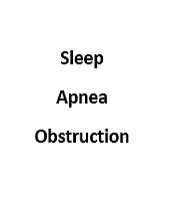Dear Editor,
I have read the review article entitled “Cardiovascular Complications in Obstructive Sleep Apnea Syndrome”. I would like to make some contributions to this successful article and congratulate its authors.
In the review article, the authors mentioned the effect of OSA on cardiovascular system that can create both long term and acute changes in cardiovascular function like hypertension, arrhythmia, myocardial infarction, pulmonary hypertension and congestive heart failure.
Firstly, sleep apnea is a very common clinical problem and the most common type of sleep apnea is OSA. There are clinical factors leading to OSA like genetic factors, smoking, obesity, upper airway anatomic abnormalities, endocrine disturbances and drugs. Severity of OSA which can be calculated as the AHI in PSG analysis based on AASM.
Secondary, cardiovascular disease is one of the most important causes of mortality in the (1). A more developed use of evidence-based medical therapies, along with modifications in people’s life style and alterations in risk factors at a population level have resulted in a decrease in heart disease mortality rates in the United States (2, 3).
The mechanisms involved in the cardiovascular consequences of OSA have been widely reviewed (4) OSA is associated with increased mortality and mostly increases mortality cardiovascular disease.
It is very important to distinguish OSA earlier to prevent and treat cardiovascular disease which can improve outcomes. Three large clinical trials are currently being carried out to evaluate the effects of OSA treatment on the incidence of cardiovascular diseases (Sleep Apnea Cardiovascular Endpoints (5), Randomized Intervention with CPAP in Coronary Artery Disease and Sleep Apnea (6) and CPAP in Patients with Acute Coronary Syndrome and Obstructive Sleep Apnea (7)).
Significant evidences also point to metabolic and cardiovascular results of CPAP treatment in moderate-to-severe asymptomatic OSA patients (8). Barbe et al. (9) demonstrated no significant difference in the incidence of hypertension and cardiovascular events in a recent randomized trial of over 7 years in patients treated by CPAP compared to control groups.
After a 15-year fallow up on 6532 children and adolescents they have found a significantly higher risk of major adverse cardiovascular events (MACEs), including acute myocardial infarction, coronary artery disease, peripheral artery disease, and acute stroke, among children and adolescents (age younger than 20 years) with obstructive sleep apnea (OSA) (10).
These findings strongly suggest that clinicians should provide careful assessment and medical treatment for patient with OSA because of increased awareness about various cardiovascular complications and critical importance of their treatment.
